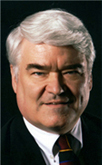© 2015 The Texas Lawbook.
By Janet Elliott
AUSTIN (May 23) – A $1.4 million civil penalty won by optometrists who leased space in Wal-Mart stores equates to exemplary damages barred under a 1995 tort reform law, the Texas Supreme Court said Friday.
The court, in a 5-3 decision, answered two certified questions posed by the U.S. Circuit Court of Appeals for the Fifth Circuit, which is rehearing Wal-Mart’s appeal of the penalty.
The majority said that a Texas law limiting damages applies to the penalties a jury awarded four Texas optometrists who alleged Wal-Mart pressured them to work longer business hours in violation of the Texas Optometry Act. The court said that the penalties are exemplary damages not allowed under the law because none of the eye doctors claimed they had been financially damaged.
Wal-Mart is pleased with the ruling, said company spokesman Randy Hargrove.
Doris Forte and three other optometrists sued the discount store giant in 2007. Their claims exposed a potential class action of 400 doctors. A federal court jury in 2010 awarded $3.9 million in civil penalties under the act, which the judge reduced to $1.4 million.
The Fifth Circuit in 2014 rejected Wal-Mart’s argument that its conduct did not violate the optometry laws, but said that the penalties were exemplary damages and could not be awarded without actual damages. On rehearing, however, the court said the state Supreme Court had not decided the issue.
Business Groups Support Wal-Mart
Wal-Mart drew support from leading Texas business groups, which urged the state justices to apply Chapter 41 of the Texas Civil Practice and Remedies Code to the civil penalty. Texans for Lawsuit Reform said the 1995 law was intended to outlaw “runaway exemplary damage verdicts based on comparatively small, or nonexistent, losses.”
In his majority opinion, Chief Justice Nathan Hecht said the jury assessed the maximum penalties of $1,000 a day, which was reduced by the federal district court to $600 a day because the judge said that the higher amount was excessive.

“But what is too much, when neither the optometrists nor their customers suffered injury against which to measure an appropriate sanction?” Hecht wrote. “It is this possibility of a wide, standardless range of permissible penalties that makes civil penalties much like exemplary damages when they were limited only by constitutional and common-law principles. This uncertainty, verging on arbitrariness, is precisely what Chapter 41 addresses.”
Justice Jeffrey Boyd dissented from the ruling in an opinion joined by Justices Debra Lehrmann and John Devine. Boyd said the act treats “damages” and “civil penalties” as two distinct forms of relief.

“I would conclude that Chapter 41 does not apply to civil penalties because nothing in that statute indicates or suggests that the term ‘damages’ means something different from what it means in all of the statutes that clearly distinguish between damages and civil penalties,” Boyd wrote.
Justice Don Willett did not participate in the decision.
Wal-Mart was represented by Gibson, Dunn & Crutcher partner James Ho and the optometrists were represented by Beck Redden partner Russell Post. Both declined comment.
Government Lawyers Raise Concern
In an amicus brief, the AG and a group of district and county attorneys said that applying Chapter 41 to government civil penalty claims could prohibit recovery of civil penalties without a finding of actual damages. The brief discussed the potential effect on 30 state laws allowing private enforcement of consumer, health and environmental laws where government enforcement also is possible.
Hecht said the question of whether Chapter 41 applies to any of the other statutes depends on the analysis the court followed, not simply on a statutory authorization of civil penalties. He said it is “flawed” to believe that the application of punitive damage limits would destroy government enforcement powers and noted that government sanctions are “limited by institutional constraints not present when the claimant is a private person.”
That language eased David George, who filed the brief for the government lawyers.
“We are glad that the Supreme Court recognized that governments are in a different position and that the provisions regarding exemplary damages do not apply when the government is seeking civil penalties,” said George, a partner at Houston’s Baker Wotring.
© 2014 The Texas Lawbook. Content of The Texas Lawbook is controlled and protected by specific licensing agreements with our subscribers and under federal copyright laws. Any distribution of this content without the consent of The Texas Lawbook is prohibited.
If you see any inaccuracy in any article in The Texas Lawbook, please contact us. Our goal is content that is 100% true and accurate. Thank you.
